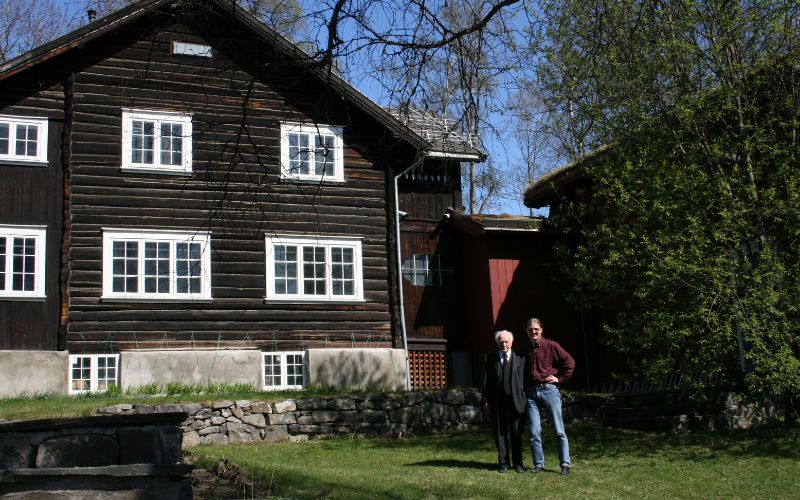Can you please tell me when and how you came to know Father Stanley Jaki and/or his work?
I met with Father Stanley Jaki at the Annual Chesterton Conference of the American Chesterton Society in St. Paul in 2006, where we both were giving talks; he on Charles Darwin and Charles Dickens, and I on my bibliographical work with Chesterton. Because of that work, I already knew of his book on Chesterton and some other pieces. We were sharing the same table at lunch, and as he heard I came from Norway, he asked me about Sigrid Undset, the Norwegian Nobel prize winner in literature, who converted to Catholicism. He told that he had been working with a translation of her, later printed that year as Through Moral Crises to Catholicism, and I said that if he wanted to come to Norway to do some research on Undset, I could drive him to her estate in Lillehammer in the middle of Norway, which, co-indicentally was at the time being prepared to become a museum, complete with Undset’s huge library. He took me on my word, and we visited Lillehammer twice; the result was his book Sigrid Undset’s Quest for Truth. Later, I have purchased every book he has published in English, inluding translations and books by other authors he arranged for publication with an introduction.
What would you highlight from Jaki’s work that you consider to be very relevant in today’s world?
The short answer is that everything he wrote is relevant; whether it be on science or theological. The most important in these times may be how Catholics may be taught about the real and necessary relation between science and religion, that science is not infallible, that it is limited, and that it is ortogonal to religion. They may be taught how to understand not only science, but also how science has come to be taken as a substitute for religion. They may be taught the lack of coherent thought underlying secularism, modernism, post-modernism and other schools of thought pervading the public discourse. For Fr. Jaki, it was important to define terms before discussing anything; to act on a foundation of the right ideas. He always was very stringent and clear, which certainly is not only relevant for the struggling Catholics, but also necessary for anyone fighting against the secular world.
What do you think is the reason why Jaki is being rediscovered today?
I regard Fr Jaki as one of the few persons whose work is of consistenly high quality and interesting to the point that one wishes to read it all. I think the quality of his writing makes it attractive to new generations, and probably enormously attractive to young Catholics. He is concerned with the eternal truths as well as applying these to scientific discovery. Anyone with an interest in the history of ideas and the history of science will rejoice in reading Fr. Jaki’s books.
How is your research area related to Jaki’s work?
As a university lecturer, I have brought in the idea that religion is the most important foundation for innovation; that is is the opposite of science and technology, as those give us the means, but not the motivation. That one should use the scientific method, for instance, is an act of faith, and simply not science. Fr. Jaki inspired me to delve deeper into the history of philosophy and the history of science and to develop certain philosophical and scientific concepts further. He has been part of creating my conceptual platform for all my work within all kinds of research areas.
